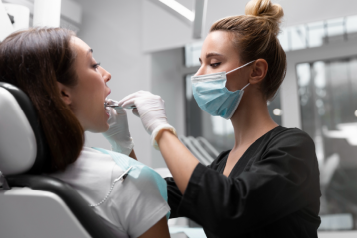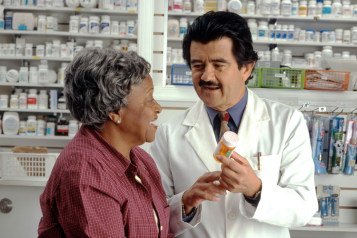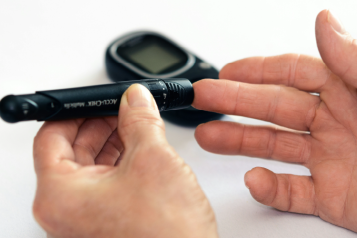Think Pharmacy

Summertime sniffles, bites and rashes? Think Pharmacy – a new service launches for quicker treatment of minor conditions in Somerset
A new GP community pharmacy consultation service (CPCS) is being rolled out across Somerset to help patients with a range of minor conditions, such as skin rashes, aches and pains, access quicker treatment via their local community pharmacist.
Patients using the service for minor conditions are already freeing up approximately 1,000 GP appointments every month in Somerset for patients with more complex conditions.
Now, when you contact your GP regarding a minor condition, after discussing your condition, where appropriate, the receptionist will offer you a same day appointment with a community pharmacist of your choice – in person, or over the phone.
Community pharmacists have already successfully seen thousands of patients in Somerset for a consultation for a minor condition since the scheme was piloted in Somerset GP practices.
The service is proving particularly popular with parents of toddlers and teens and older people for conditions such as eye and ear infections, sore throats, skin infections, sprains, and urinary tract infections and for those with common summer conditions such as hay fever, insect bites and skin rashes and those with sprains and falls.
A minor illnesses or injuries could include:
- Ankle, foot, knee, leg or arm strains and aches
- Bites or stings
- Coughs and colds
- Eye and ear infections
- Hay fever
- Headaches
- Mouth ulcers and blisters
- Rashes
- Skin conditions
- Sore throat
- Urinary Tract Infections (UTI’s)
How the service works
You will be contacted by your nominated community pharmacist to arrange any appointment for a consultation in person or on the phone. When you have a consultation for a minor condition, your pharmacist will take your medical history, ask about your symptoms and any current medication you might be taking. Following the consultation, they will offer you clinical advice and if appropriate, offer you an over-the-counter product. Increasingly pharmacies can also prescribe medication such an anti-biotics and are often open at evenings and weekends. The pharmacist will make a record of the outcome of your consultation and send it to your GP.
If having given you advice or treatment, your pharmacist thinks you may need further specialist help they will be able to refer you back to your GP or recommend another health service for support.
Dr Jeremy Imms, Associate Clinical Director, Somerset Clinical Commissioning Group, said: “The Somerset Community Pharmacy Consultation Service will be of huge benefit to many of our patients as lots of minor conditions are more appropriate for a consultation with a community pharmacist, rather than a GP.
“This will improve access for patients with minor illnesses and will also help us to free up GP appointments for people with more complex health needs; helping ensure everyone gets treated at the right time, by the right healthcare professional.
“At this time of year people are beginning to experience seasonal conditions, such as hay fever, insect bites and rashes, and more sporting and other minor injuries from just being outdoors more. Our community pharmacists are highly experienced in diagnosing and treating common complaints, and patients will now the ability to choose to have their consultation with a pharmacy close to home at a convenient time.”
Michael Lennox, CEO of Community Pharmacy Somerset, said: “Community Pharmacists are highly trained healthcare professionals with five years training and spend a high percentage of their time helping treat patients with minor illness and recommend over-the-counter treatments where necessary.
“Pharmacies across the area are often open during evenings and throughout the weekend and can provide support on the same day via the phone, with most having rooms available for a private consultation.
“As well as saving you time, getting support from your community pharmacist frees up appointments for your GP to see more urgent patients. If we think you do need to see a GP, we’ll always advise you to do so.”
Find out more about the community pharmacist consultation service (CPCS), answers to frequently asked questions and a short animation at: somersetccg.nhs.uk/community-pharmacy/


